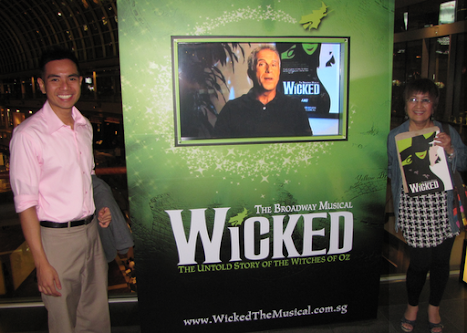But that is not what this post is all about.
It's about the wickedly enthralling Broadway Musical, “Wicked,” which the three of us watched last night, thanks to JB who bought our tickets. (We wouldn't otherwise even consider the prohibitive admission cost. Retired people like me look the other way when our favorite things loom large to tempt us.)
It
doesn't open with the usual orchestra overture; it opens with a spellbinding
number that immediately introduces the audience to the interesting characters in the
village where the play begins and ends.
Every
moment of the two-and-a-half hour spectacle keeps you riveted, especially if, as
a child, you marveled at the Wizard of Oz. “Wicked” is an ingenious prequel to
that story of our youth. And it moves along solving adult issues until the
curtain call.
As I
have learned in drama school, a good play has to have a series of
moments: extraordinary scenes that hold and affect the audience (and may I add,
as I write about God's grace today, change them for the better).
In a
musical play, this can only be achieved by a village—an ensemble composed of an orchestra,
song writer, lighting engineers, set and costume designers, stage managers, choreographers,
actors, director, etc.) No play is ever staged successfully without the coming together
of all citizens of this village.
In
“Wicked,” the village is wickedly intact and well-oiled. And the message came
through loud and clear: Looking at things differently is a matter of mindset
change; and we all change for the better because of significant relationships, even between most unlikely friends.


















